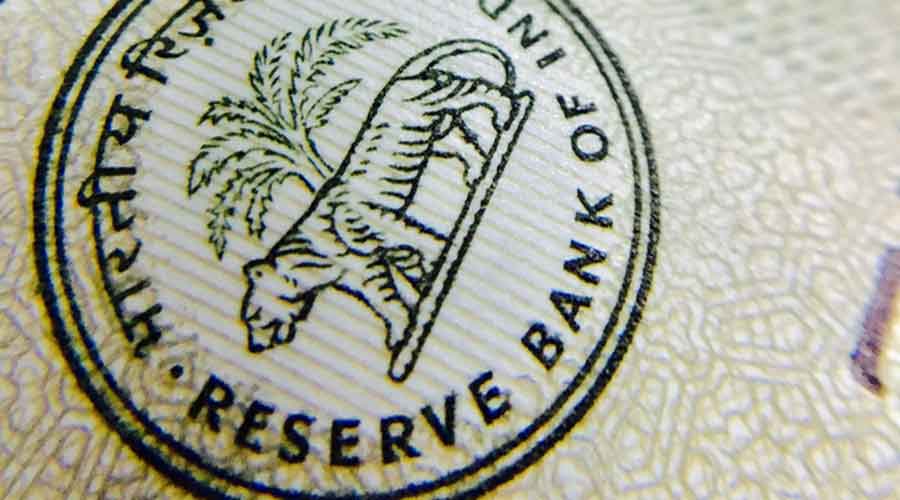The Reserve Bank of India announced after a meeting of the Monetary Policy Committee that it would keep its policy repo rate steady at 4 per cent for the fifth straight time. The statement's dovish tone eased market worries that quickening inflation could lead to any monetary tightening in the foreseeable future.
The six-member committee “unanimously decided to continue with the accommodative stance as long as necessary to sustain growth on a durable basis and continue to mitigate the impact of Covid-19 on the economy,” Governor Shaktikanta Das said.
In the face of the resurgence in Covid-19 infections, fiscal and monetary authorities “stand ready to act in a coordinated manner to limit its (the pandemic's) spillovers to the economy at large and contain its fallout on the ongoing recovery,” Das added.
The central bank said it was retaining its 10.5 per cent growth prediction for the financial year ending in March 2022 as rural demand remained buoyant while urban demand has been gaining strength. But it cautioned that climbing Covid-19 cases have heightened uncertainty about the domestic growth outlook. “Localised and regional lockdowns could dampen the recent improvement in demand conditions and delay the return of normalcy,” the RBI chief said.
“Monetary policy will remain loose for a long while yet,” Shilan Shah, senior India economist at Capital Economics, said.
The International Monetary Fund was even more bullish on India's prospects than the central bank. It forecast that the economy would expand by 12.5 per cent in this financial year after shrinking by 8 per cent during the previous 12 months. Such a growth performance would outstrip China that the IMF forecast would grow by 8.4 per cent.
But the IMF attached a big caveat to its Infis outlook contained in its latest World Economic Outlook, prepared before the sudden infection leap. The IMF said the second Covid wave was a wild card and warned of “significant downside risks” if the health crisis worsens. The Covid upsurge “is quite concerning,” IMF Chief Economist Gita Gopinath told reporters.
The country reported a record 115,736 new Covid-19 infections on Wednesday, a 13 per cent rise in just two months. Compounding pandemic worries, economic powerhouse Maharashtra, which accounts for nearly half of the new Covid cases, announced it had just three days of vaccination supplies left. Maharashtra has imposed a night curfew, issued work-from-home orders and declared a weekend lockdown to wrestle down infections.
CARE Ratings Chief Economist Madan Sabnavis said the IMF’s 12.5 per cent economic growth projection for India in the current financial year appeared "very unlikely" to be achieved amid the regional lockdowns that could dampen both services and manufacturing activity.
While Moody’s Analytics calls inflation “uncomfortably high,” the RBI is keeping its monetary policy “accommodative” to get the economy back on a high growth path. Consumer price index-based inflation is running at 5 per cent while core inflation, which strips out food, fuel and light, is 5.6 per cent. Any interest rate hike to brake on inflation would increase borrowing costs and slow economic growth.
The central bank currently targets inflation of 4 per cent, allowing an upper and lower “tolerance band” of 2 per cent. Das said the bank’s determined to keep inflation within the two-to-six per cent target range for the next five years, even though cost-of-living increases exceeded that range for most of last year, driven by food, fuel and commodity prices.
Das said the bank expected inflation to be around 5.2 per cent for the current financial quarter to June. Inflation has suddenly reared its head as an economic risk factor in India after years of being relatively dormant.
The central bank fuelled inflation worries Wednesday by formally announcing its plans for a massive government bond purchase program. The bank plans to buy Rs 1 trillion worth of bonds in the secondary market in this financial quarter on top of its normal bond-buying operations.
Analysts called the bond-buying spree a move toward “quantitative easing,” a term for expanding the supply of money in the economy in a bid to spur growth. The Indian currency slid by 1.6 per cent to Rs 74.57 against the US dollar on Wednesday, its biggest one-day drop in 18 months, after the bond announcement stoked fears that it would create a liquidity glut. Central banks around the world have been pumping in liquidity to shore up economies during the pandemic.
Investors worry such stimulus measures could turn inflationary but Das said the bank's "endeavour will be to ensure congenial financial conditions for the recovery to gain traction.”










